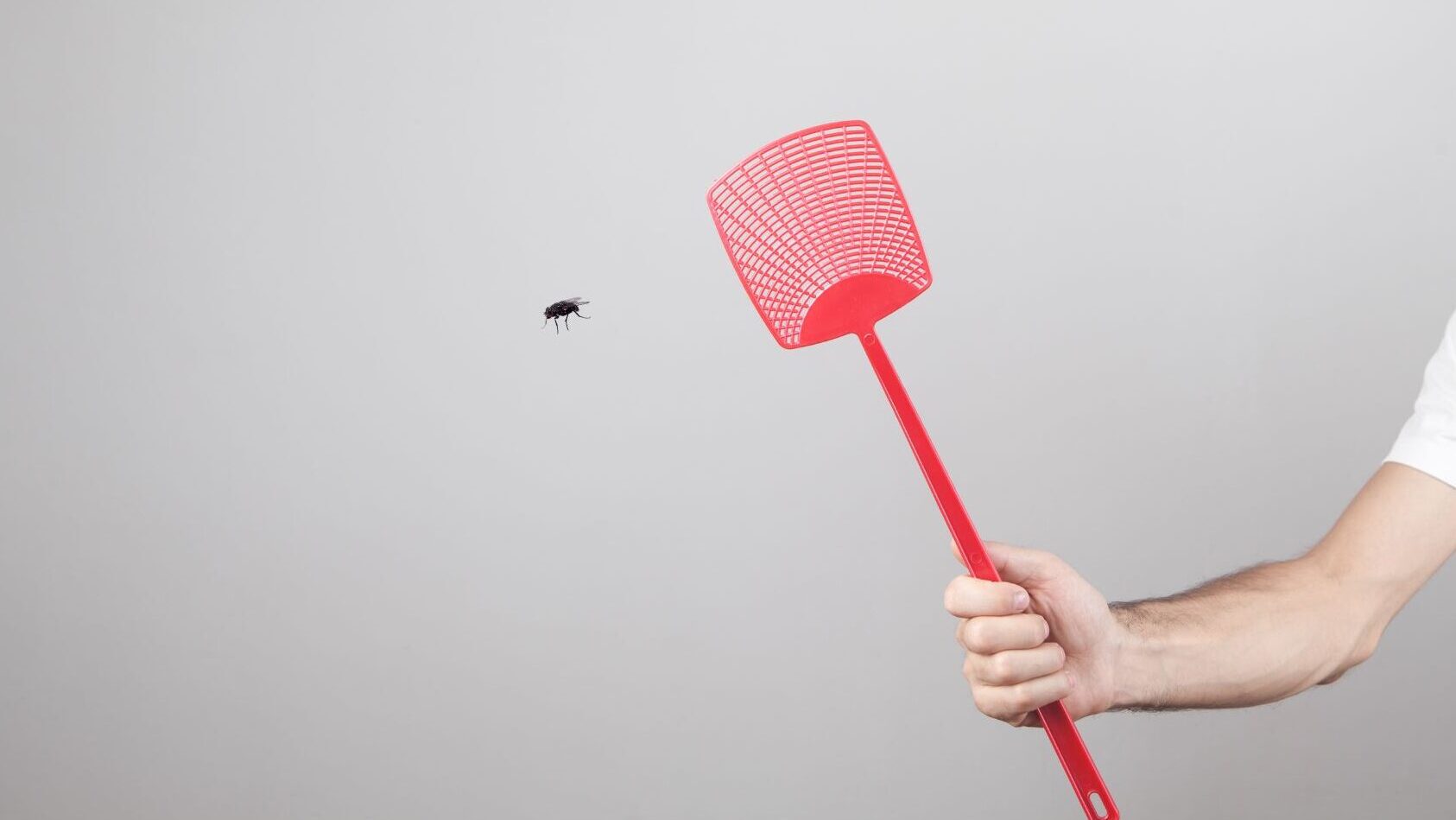How to Get Rid of Flies in the House

Flies are a persistent nuisance in homes across the country. These buzzing insects not only disrupt daily activities but can also pose health risks as they carry and spread bacteria. If you’ve found yourself thinking ‘why are there so many flies in my house?’, then read on to find out more. This guide provides homeowners with effective strategies to eliminate existing fly infestations and prevent them from recurring.
By understanding the reasons flies are attracted to your home and implementing preventative measures, you can create a fly-free environment and ensure a more peaceful living space.
Why do flies come into the house?
From fruit flies to bluebottles, there are multiple reasons why you may have flies in your house.
Food sources
Flies are drawn to crumbs, spills, dirty dishes, bins, and unattended pet food. Having any bits of food left open and available can entice flies into your home. Fruit flies, in particular, are known for being drawn to fermenting fruit and vegetables. Overflowing and improperly sealed bins can be a breeding ground for flies since the rubbish provides a constant source of food.
Preventative measures
To prevent flies from being attracted to food in your house, ensure you:
• Store food appropriately in airtight containers.
• Wipe down any surfaces where crumbs might exist.
• Empty bins regularly.
• Clean up spills immediately.
How to get rid of fruit flies
If you’re suffering from fruit flies inhabiting your house already, there are different approaches you can take to stop these tiny black flies from causing a nuisance. First, remove what could be attracting the flies – clean your kitchen by wiping any spills or crumbs up, removing any rotting fruit and vegetables, and emptying your bins.
As well as this, you might want to make a homemade trap or buy a trap designed for eliminating fruit flies. You can make a homemade trap by filling a small bowl with apple cider vinegar and a drop of washing up liquid.
Moisture issues
Damp environments are a breeding ground for flies. Some common culprits are leaky taps, uncleaned pet accidents on carpets or floors, and condensation. To solve this issue, fix leaky taps quickly and address any areas with excessive moisture by improving ventilation and drying out damp spots.
House plant flies
If you’ve found flies on and around your house plants, these are likely fungus gnats. These tiny flies thrive in moist soil and could even damage your plants. The main cause for fungus gnats is overwatering your plants, so allow the top inch or two of soil to dry out between waterings to discourage them.
You could also stop house plant flies by purchasing anti-gnat pot toppers or sticky traps.
How to keep flies out of the house
There are different routes you can take to prevent flies from entering your house, from natural approaches to store-bought products. Let’s take a look:
Natural repellents
Particular strong scents can repel flies, especially citrus smells. Because of this, placing a few orange or lemon peels where you find most flies, including entry points to your home, could be beneficial. Certain essential oils like eucalyptus and certain plants like basil could have natural fly-repellent properties too.
Fly products
If natural methods aren’t working, you could consider using fly traps or other products to prevent an infestation.
How to keep flies out of your house when the door is open
Keeping flies out when the door is open can be a challenge, but there are several strategies you can try:
Fly screens for doors
Fly screens are protective mesh barriers that can be installed over doors as well as windows. These screens mean that airflow can still occur but insects cannot enter the property.
Keep the air moving
Stagnant air can be more attractive to flies, so you could open windows at opposite sides of your home to create a cross breeze, or make use of fans.
How long do house flies live?
The average lifespan of a house fly depends on factors like temperature, food availability, and predators. In ideal conditions, house flies can live for around 20-30 days. However, their lifespan is typically much shorter, closer to 10-14 days.
Home advice from County Town Homes
County Town Homes is dedicated to providing our homeowners with peace of mind. We want you to focus on creating lasting memories in your new home, not swatting at flies. By following the tips in this guide, you could achieve a fly-free living space.
For more tailored advice for homeowners, and those looking to buy a house, explore our collection of blogs where we focus on topics like saving for a deposit, deciding where to live, and checklists like our Moving House Checklist.

